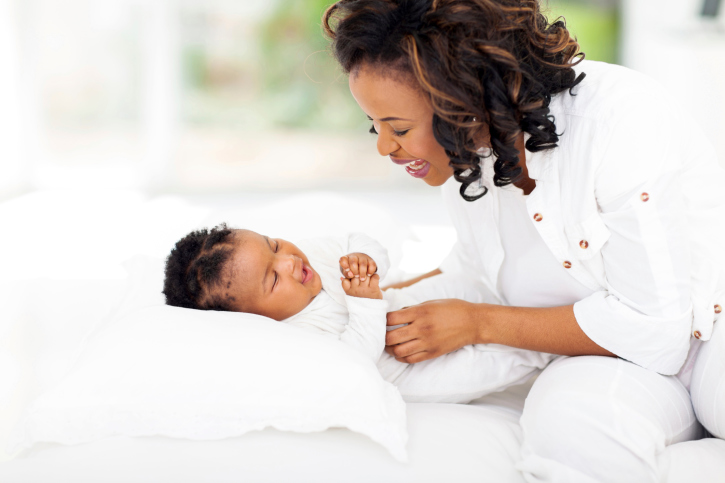
Just had a baby? Feeling sad or depressed? Don’t worry…you are not alone. One in 8 women is affected by postpartum depression (PPD) within the first months after childbirth. Why is it so important for every black mother to know the signs? Because depression is still a taboo topic in our community, and knowing the signs is the best thing you can do for both you and your baby.
Depression In Black Women
Even more striking, depression among black women is more common than you think. African-American women live with a triple jeopardy status that places us at a greater risk for depression. We live in a majority-dominated society that frequently devalues our ethnicity, culture and gender.
Formal statistics on depression in African American women are either uncertain or non-existent because the research is scarce. Many women are unwilling to participate in research studies because they are afraid the information will be misinterpreted and will be used against them. The few studies that have been done show African American women report having more depressive symptoms than African American men and twice the rate of European Caucasian women.
If you’ve never heard of postpartum depression or would like to know more about what it is , it is a serious illness that can not only happen with women who have just given birth but it can also affect mothers who have had a miscarriage or still birth.
What’s the Difference?
Many women report having a case of the baby blues, while others have PPD. It’s important to know that there is a difference between the two.
The baby blues will occur in many women within the first weeks of having their child. With the blues, you may have trouble sleeping and feel moody, teary, and overwhelmed. You may have these feelings along with being happy about your baby. But the baby blues usually go away within a couple of weeks. The symptoms of postpartum depression can last for months.
PPD can make you feel very hopeless and worthless. You may also feel as though you are unable to care for or bond with your baby. Below are a few ways to Diagnose if you have PPD:
Common signs of PPD:
- You feel extremely sad , hopeless and empty inside with severe anxiety.
- Feelings of worthlessness or guilt, with no reasonable cause.
- Loss of pleasure in either all or almost all of your daily activities.
- Appetite and weight loss-usually a drop in appetite and weight, but sometimes the opposite.
- Sleep problems-usually trouble with sleeping, even when your baby is sleeping.
- Difficulty concentrating and making decisions.
- Suicidal thoughts or frightening thoughts of harming your baby; these thoughts tend to be fearful thoughts, rather than urges to harm.
To learn what you can do to cure PPD, and feel better faster, visit MochaManual.com.









